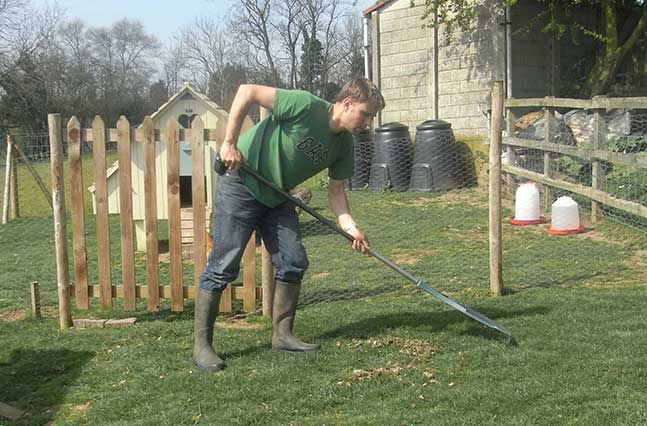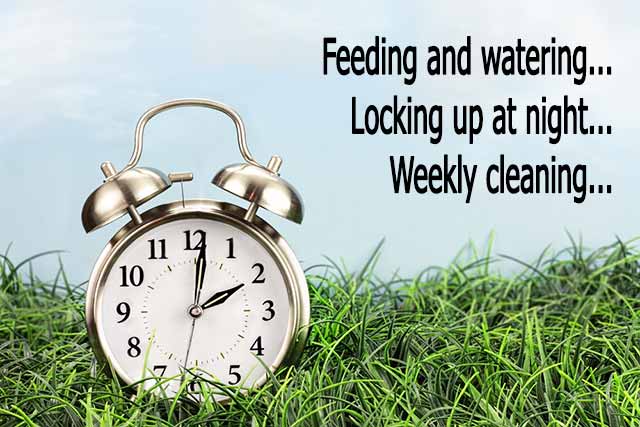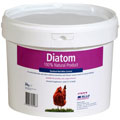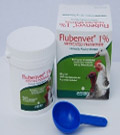Chickens need to be tested for worms regularly. If there is a build up of worms in their digestive system that can cause health problems. Keeping chickens in a fixed area as so many of us do, where they are grazing the same piece of ground continually is the worst case scenario as they will be contaminating the ground and picking up worm eggs as they are feeding. Infected hens shed thousands of eggs in their faeces onto the ground and so, the problem gets worse.
How can you tell if they need worming? By using a Worm Count Kit! Using a kit means you’re not worming chickens unnecessarily.
Wormers
I use a product containing Flubendazole when necessary to worm my chickens. This is a proven chemical wormer that kill all common worms and their eggs in the chicken and is the only product licensed for use in chickens feed. In between these times, I use Verm-X which has approval for use in Organic systems – now this is a herbal product which works in a different way – you will need to feed this to your hens every month for it to work. The really great thing about Verm-X is that being herbal, it contains many ingredients that are good for your birds so it can improve their overall health.
Good Husbandry
Practising good husbandry techniques is key, in between worming chickens. We try to rotate our birds grazing area every month so that they get some fresh grass but so the ground also gets to rest (this is one of the major principles in Organic farming) and we keep the grass mowed short which allows the ultra-violet light from the sun to reach droppings and kill off worm eggs.

Cleaning a chicken run by raking droppings during dry weather.
General cleanliness is of course important so if your chickens scratch around in their own droppings, you should be thinking about cleaning them up, rather than hitting them with a regular dose of chemicals.
Bad Infestations
If you have a bad infestation of worms, you do need to keep in mind that eggs deposited on the ground will re-infect your birds and it is necessary to repeat the treatment before the eggs hatch and grow into adult worms to lay more eggs. This takes 3 weeks for most common worms carried by chickens so I would re-treat after 3 weeks if I suspect a particularly bad case of worms.
Where external parasites are found on the bird (such as Northern fowl mite or lice) a systemic wormer / pour on product containing Ivermectin is useful. This kills a more limited range of worms. Victoria Roberts Diseases’s of Free Range Poultry says it excludes tapeworm and fluke, but these are less common in chickens. It isn’t licence for use on poultry so you would need to go to your vet for their advice.
Please remember this should not replace the advice of a qualified veterinarian who can advise you about worming.
Do you have any advice on worming? Please leave me a comment below.






A very interesting article, thanks. As worm eggs are destroyed by UV in sunlight, would it be harmful to chickens to use a UV light in the run maybe once a week to sterilise the floor? I’m concerned it may affect the chickens’ eyesight, (UV does that) so perhaps we could do it when they’re out free-ranging at weekends. (It’s an enclosed, fixed, walk-in run with wood chip over grass and a weed membrane and it doesn’t get much direct sunlight) UV is a good steriliser inside fish pond filters so maybe it would work in chicken coops.
I am not sure but would guess the UV is much stronger from the sun…
don’t use uv near your chickens you will blind them
Don’t worry, it’s the U.V from the Sun that kills the worm eggs (a reason to keep grass cut short).
Hi, great article thank you. I have a chicken who for 5 days now has been sitting around not doing much, not eating her food and even leaving mealworms, which is unheard of. She has watery green poos and dirty knickers. The day after I noticed she was not well, I deep cleaned the eglu cube, changed the woodchips in run, desanitised etc.. I started worming with flubenvet and we are now on day 3. How long does it take for a hen to get better? And is it likely she will recover?
Many thanks
It depends on how much damage has been done, most hens recover from moderate cases but they can also get impacted with worms in the gut. If there are lots of worms, they can release so many toxins when they die that the hen dies. It’s fingers crossed that you caught it in time.
If she doesn’t get better, I would rule out worms and take her to a poultry vet.
One of our chickens has worms. I spotted them yesterday, tiny wriggly things about a centimetre long. She’s been okay in herself but has had diarrhoea that I’d put down to diet originally. We’ve bought verm-x and are using it in her water but our girls are reluctant to drink it. Any tips or ideas on what kind if worms these are? Will the diarrhoea stop at the same time as the worms are killed off for us to tell when she’s rid of them. Thankfully our other birds appear to be okay.
You need to worm her with Flubenvet (I have a page on this). This will kill the worms and their eggs. Unless you change the ground they are on, they will also become re-infected so will require worming again in about a month after the end of the first treatment.
Diarrhoea is a sign of worms.
Also we don’t have lime but do have ash from our wood burner. Would this help to go on the floor of the run? It’s pretty wet and muddy at the minute with all the rain we’ve had.
Wood ash can be used carefully and has a liming effect on the ground, but care must be taken as it can effect the respiratory system as can other dusty substances. Chickens are particularly prone to respiratory problems.
If you could remove your chickens from their run for a month, you could like the run with garden lime. You must make sure it has had adequate time to wash into the ground so it doesn’t burn their feet. Lime is good at killing off worm eggs.
Mud is a perfect breeding ground for worms. The way most people manage a fixed run is to board around the edge and then fill the run with wood chips, rubber chips or sand / gravel. Do not use bark chips since these can harbour mould spores that cause aspergillosis in chickens. This substrate can then be removed once mucky and replaced (about once per year is usually about right).
Hi, you say you use Verm-x in between times. Does his mean the month you use flubevet you shouldn’t use the Verm-x?
No you can use Verm-X whenever – it’s totally natural / herbal so it’s a good boost for them and won’t harm them.